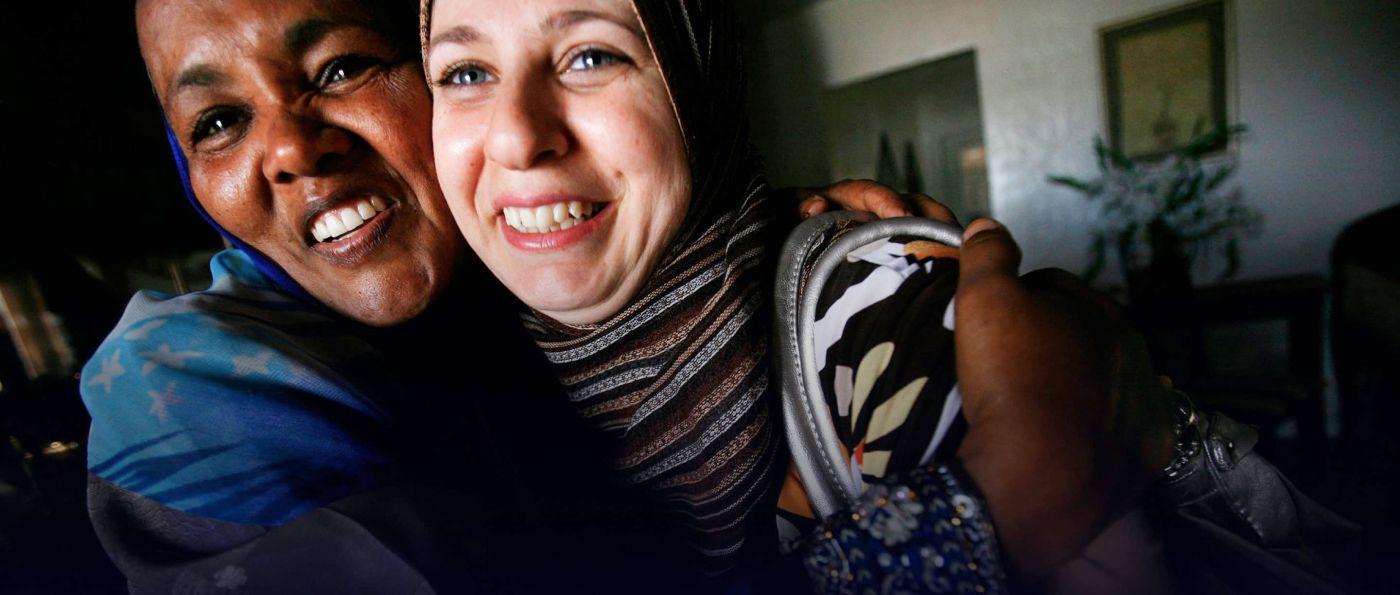

Two families search for safety and reunite in North Carolina
When Janice Gallagher and her husband, John-Marc, moved to Nicaragua in 2003, after living in Costa Rica for six years, they thought it would be their forever home. Within a few years, Janice and John-Marc welcomed their son Anthony into their lives, and when he was two years-old, the family moved to a farm in a small town about 20 minutes outside of Granada, Nicaragua.

That is where the Gallaghers first met Betza, her husband Yader, and their 1-year-old daughter, Sasha, who lived across the road in a modest two-unit home that they shared with Betza’s mother, brother, and five dogs. Betza worked several jobs, including in the farming industry, cleaning houses, and making and selling food and merchandise—while Yader worked long hours and commuted far for a job that offered little pay.
Betza did some housekeeping for the Gallaghers, and the two families became very close. Their children, Anthony and Sasha, grew up together.
“They were a big part of our family,” Janice said. “It was an amazing experience to have them there.”
There was no school in their small town, so Janice and John-Marc founded an international bilingual school that their son Anthony attended. The couple also funded Sasha’s education at the school.
The political situation in Nicaragua took a turn in 2018 shortly after President Daniel Ortega’s contentious 3rd-term reelection in 2017. Civilian-led protests broke out across the country, which the government forcefully shut down. Hundreds of protestors were killed, and tens of thousands were exiled to neighboring countries.
Within a few weeks, protesters started setting up roadblocks. The school the Gallaghers operated was 20 minutes from their farm, and at times, they had to drive through farms and dried up creek beds to circumvent the barricades.
“It was very scary for people who didn’t understand, because everybody’s in black balaclavas and they’ve got guns, and you’re thinking, ‘Okay, are these the good people or are these the bad people?’” Janice said. “They all looked alike. But it was basically the opposition to the government—they were protesting the killing of all the students in the universities.”
Over the course of the following month, tensions continued to rise.
“They were arresting people if you were suspected of being anti-government,” Janice said. “It became illegal to fly the Nicaraguan flag, so it just started escalating to the point where it was pretty much a police state. I just thought, ‘I don’t want my child to grow up in this.’”
Nicaragua was placed on travel advisories due to the state of conflict, the lack of available healthcare, wrongful detentions, and safety concerns.
“We basically had no business, but we were still trying to support our staff,” Janice said. In addition to the school they founded, the Gallaghers operated rental properties and a real estate office. “We had a staff of 26 people, so we were still trying to pay them.”


After the school year ended in 2019, the Gallaghers made the difficult decision to leave the country that had welcomed them, which they loved so dearly. The government had shut down the airport several times, but the family was able to make it safely out of Nicaragua, hiring a trusted mechanic to take them on back roads to the airport in Managua, with the sound of gunfire nearby.
They relocated to Bryson City, North Carolina, in the Smoky Mountains with the hopes that they’d be able to return to Nicaragua in a year or two.
“We kept thinking that perhaps things were going to get better,” Janice said. “And they have only got worse.”
Worried about their friends’ safety, the Gallaghers began working to get Betza, Yader, and their daughter Sasha out of Nicaragua. In early 2023, Janice learned about the humanitarian parole sponsorship program – Process for Cubans, Haitians, Nicaraguans, and Venezuelans – and applied to sponsor Betza and her family immediately. In April 2023, Betza and her family arrived in the United States and were welcomed by the Gallaghers.
“We really think that this was an act of God,” Betza shared, noting that she and her family are Catholics with strong faith. “We feel that it’s a blessing.”
After the family arrived in North Carolina, Janice connected Yader and Betza to a local casino where they are both now employed. Yader passed his driving test, and the couple was able to buy a car. In February 2024, the family moved into an apartment of their own close to the Gallaghers, and Sasha is excelling at the local high school where Anthony recently graduated.
“They immediately just fell into family, and it was like before we left,” Janice said.

Betza and Yader get homesick frequently, having left their extended family, pets, and the only home they had ever known behind.
“It’s a new wave of adaptation, settling in another country, and leaving family behind,” said Betza. “But on the other hand, it’s a motivation because that way we can earn money and assist our relatives and families back home.”
The couple has dreams of buying a home of their own and one day reuniting with their relatives. But for now, Yader lights up as he talks about his daughter and the opportunities they have in the U.S.
We really feel blessed, being in the U.S., because it's really the country of dreams. Sasha will have better life opportunities [here]. She will be able to go to college and become a professional.
While they have fears about their future and what will happen if they need to return to Nicaragua after their two-year humanitarian sponsorship period is up, Betza and Yader shared that sponsorship has changed their lives and could change the lives of many others who are still struggling in their home country.
“There are really a lot of people who are in need,” Betza said. “So this mechanism is really a great opportunity for improving and changing people's lives, for assisting them to make a change. I encourage people to become sponsors and assist other people who need it.”
Janice and John-Marc have already sponsored another newcomer from Nicaragua, who is settling in, learning English, and awaiting a work permit. The couple also is waiting for approval to sponsor their third beneficiary. Friends who have followed Janice and John-Marc’s journey are now considering sponsorship themselves.
“I think it’s important that people know you have to put other people before yourself at times, and if you can do that, you can change someone’s life,” Janice said.
More stories of welcome




